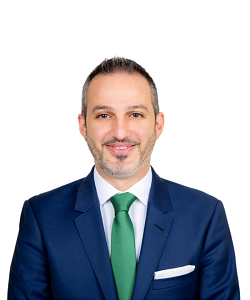Anyone who knows me, knows I have a penchant for coffee and a passion for healthcare. When I started volunteering at a charity clinic, the first thing I brought with me was a proper coffee machine. Before long, patients started calling me “Dr Brew” because I always have a cup of coffee in my hand.
I love the nickname, because if you think about it, whether you are talking about coffee or talking about healthcare it’s all about the brew. It takes the right mix of beans to make a great cup of coffee. And it takes the right mix of clinical knowledge, technology and empathy to make a positive impact on patients’ lives.
Improving clinician productivity and patient interactions with AI
The clinic supports underserved communities in rural areas. It is a volunteer outfit, so we have a barebones staff, minimal equipment and a limited supply of medicine. The only thing we’re not short on is people in need.
In an environment like that you really need to be as efficient as possible. But in some ways, stepping into that clinic is like stepping back in time. We rely on old-fashioned paper records and handwritten notes, which is about as inefficient as you can get.
One day, while enjoying my morning coffee, it occurred to me that we might be able to use AI to summarise our paper records and save some valuable time. I started experimenting with large language models and quickly came up with a way to distil a scanned paper record into key points. And for good measure I found a way to include a personal anecdote in each record to help break the ice and establish a rapport with the patient.
This small Generative AI project had big results. We now spend less time sifting through patient records and more time focusing on what matters most – engaging, diagnosing and treating patients. And if I can do all that on my own, in a rural setting, just imagine what a team of data scientists can do with AI if they put their minds to it.
Using machine learning to predict appointment no-shows
It’s still early days, but several InterSystems customers are already using AI and machine learning (ML) to increase data insights and improve productivity and care quality. The King Khaled Eye Specialist Hospital (KKESH) in Saudi Arabia is a good example. They were plagued by patient no-shows. On an average day, a high percentage of patients simply did not show up for their scheduled appointments.
KKESH tried all the usual tricks – text messages, email reminders and voicemail notifications – to no avail. They also tried overbooking appointments, but that had mixed results. On some days it worked well. On other days, all the scheduled patients showed up and chaos ensued. They knew there had to be a more scientific way to approach this problem.
To that end, we worked with KKESH to develop a machine learning model to predict no-shows based on a variety of risk factors. They use the information to proactively contact those patients who are most likely to miss an appointment. With the new data-driven approach, KKESH is able to schedule significantly more appointments each day and avoid countless hours of lost clinician productivity.
Improving disease detection and prevention with predictive analytics
Another InterSystems customer in the Middle East uses AI to improve diabetes detection and prevention. They are studying hundreds of patient records, analysing various traits to uncover previously unknown early indicators. The project will help clinicians better identify patients who are likely to develop diabetes within five years so they can recommend behavioural changes and preventive measures sooner rather than later. Other hospitals and healthcare systems are working on similar projects for chronic obstructive pulmonary disease, breast cancer, sepsis and other diseases. The opportunities are almost limitless.
Another InterSystems customer uses predictive analytics to identify patients who are most likely to be readmitted to the hospital within 30 days of discharge. They analysed four years of patient data to identify common predictors. By taking simple steps like extending hospital stays by a single day or clarifying and reiterating discharge instructions, the provider has reduced 30-day readmissions by 8%, which not only improves outcomes but also saves the healthcare system millions of dollars.
Getting started with AI and ML
Clearly, AI holds tremendous promise. There are so many potential applications for the technology it is easy to feel overwhelmed. My advice is to be pragmatic. Start small. Pick a couple simple use cases. Solve some real-world problems. Gain some experience and then take on a slightly bigger challenge.
Whether you are looking to AI to solve a business problem, improve a workflow or address a clinical concern, InterSystems has the technology platforms and expertise to help you solve your healthcare challenges quickly and easily. Our solutions make it easy to acquire, aggregate, preprocess, clean and enrich healthcare data for AI and ML. We can help you accelerate time to value and make the most of your AI investments, with a single platform that supports a range of AI use cases. Think of us as your AI barista!


















